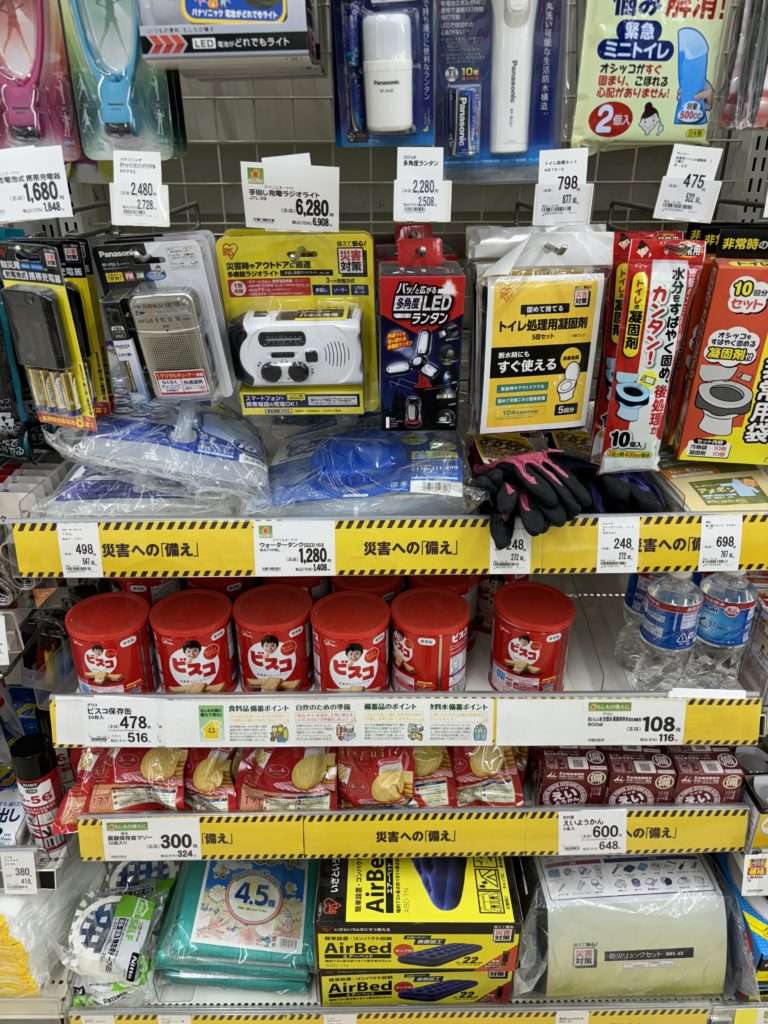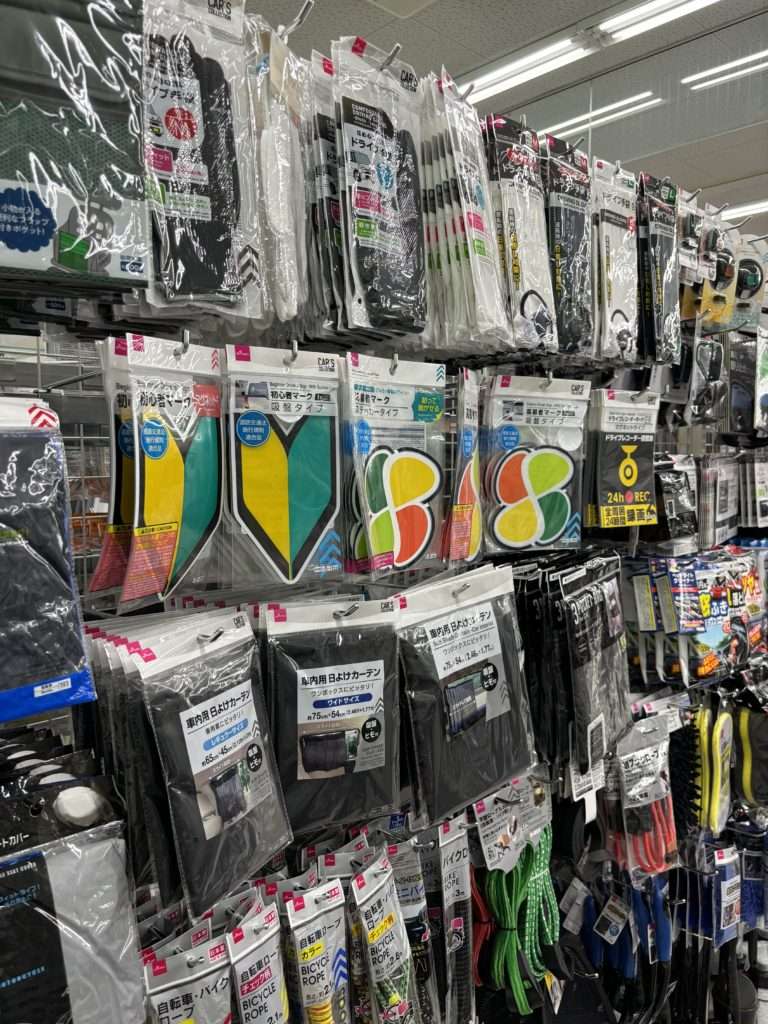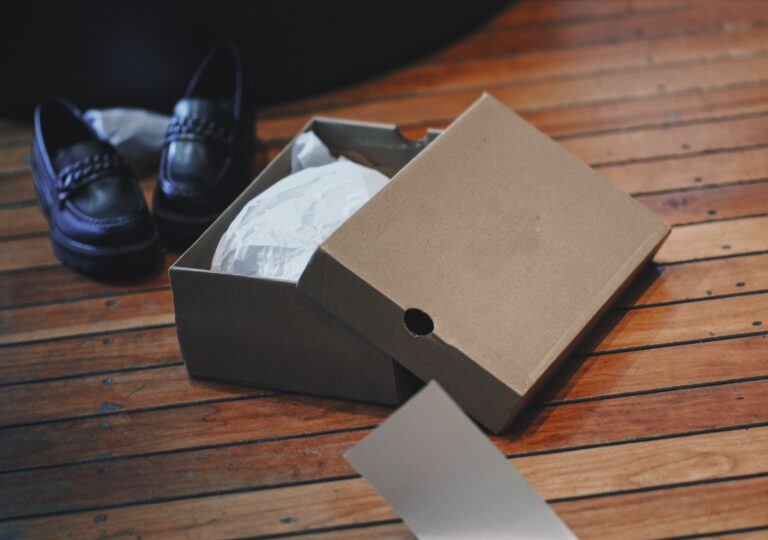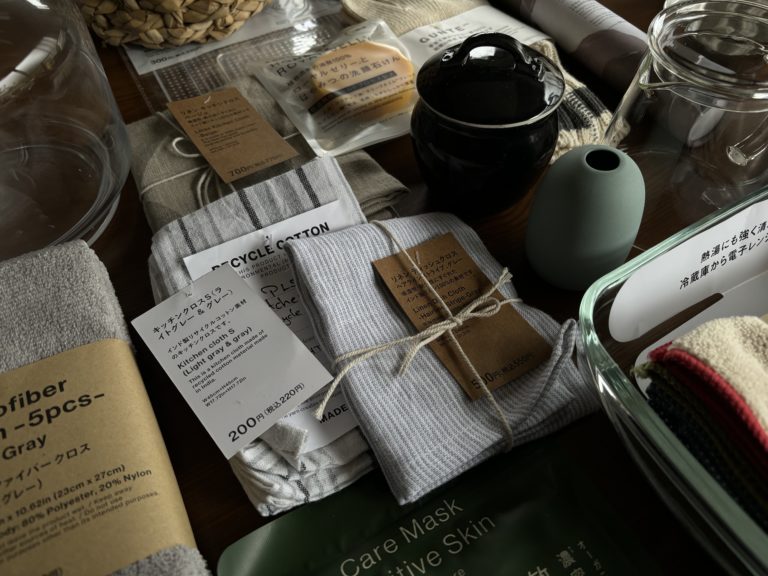The Getting-Settled-In-Japan Checklist: What You Need for Your New Life in Japan
You’ve found a job and a house in Japan, ticket in hand and ready to go! You are ready to start living in Japan as a foreigner! After you arrive in your new (or new temporary neighborhood), what are all the tasks you need to do to get organized?
The Ministry of Justice has provided an English Guidebook on Living and Working [in Japan], and that’s a great places to start for entry/residence procedures, procedures at the municipal offices, rules for employment, medical services, tax, housing and more.
But from my own personal experiences moving to and maintaining residence in inaka Japan, that’s just the beginning! Here are my additional recommendations. Depending on your situation, there may be more things to do, but this should be a good place to start!
[toc]
☑ Get a Residence Card
Anyone over the age of 16 needs to have their residence card on them at all times. This will be needed for most official registrations such as enrolling in health insurance and to open a bank account. Residence cards are generally issued at the Japanese airport where you receive a landing permit. If you don’t receive this at the airport, request one at your local municipal office.
☑ Prepare to Translate Japanese Language
Moving to Japan can be an exhilarating experience, but the language barrier can often pose a significant challenge for newcomers. This is where translation apps and browser extensions come to the rescue, proving to be indispensable tools for expats and travelers alike. Whether it’s ordering food at a restaurant, reading paperwork, or assisting in communication with neighbors and coworkers, it sometimes seems impossible to live without a smartphone in hand!
Google Translate’s camera translation function works well on the road for menus, train signs, and forms. You can generally understand basic information, even when the translation isn’t perfect. DeepL is recommended for situations where natural tone and nuance are more important, such as personal emails and messages.
Browser Extensions
Chrome
Microsoft Edge
Firefox
DeepL Translate
Firefox Translations
Smartphone Apps
Google Translate
DeepL
Google Translate Pro-tip: Download English and Japanese language ahead of time in case you have a hiccup with data or internet connectivity.
☑ Maintain a Personal Information Reference Document
When I first got to Japan, I started keeping digital reference information in a text document on my phone. It was indispensable! As I went to appointments at the town hall, doctor, bank, etc. there were always questions about address, phone number, and personal information. It speeds up the process to simply show someone a document with the necessary information, rather than scratch your head and fumble through writing katakana, only to realize you made an important mistake. Here is some of the information you might need to refer to on a regular basis. Use a note, Google Doc, OneNote, or other note-taking app of your choice to keep records of:
- Your name written in katakana
- Japanese phone number
- Address in Japan
- Employer information: company name, address, supervisor’s name and phone number
- An emergency contact in Japan: name, phone number, address, email address
☑ Get voice, data & messaging for your phone
Long-term phone contracts for Expats & Foreigners
Top networks in Japan:
Rakuten Mobile 楽天モバイル
Docomo
AU
SoftBank
What’s a MVNO?
MVNO stands for mobile virtual network operator. MVNOs are smaller companies that make use of larger cellular networks. These companies include mobal, Sakura Mobile, LINEmo, IIJmio, and NifMo.
Getting a phone provider that offers English support has relieved a lot of hassle. I personally have used Sakura Mobile since arriving in Japan and feel comfortable recommending their services. They offer voice, data, travel SIM and pocket wifi packages for long-term and short-term. They have prompt English e-mail support. Just be sure to check your device and SIM compatibility ahead of time.
Best cellphone service for those coming to Japan: Sakura Mobile
Short-term travel SIM or eSIM options
If you want to buy yourself some time, you can opt for short-term data via SIM, eSIM or pocket Wi-Fi. You can find booths at the airport that will set-up and activate various SIM cards on the spot. Service providers include Samura Mobile, eSIM Japan, and airalo.
airalo is a convenient travel eSIM with low rates starting at $4.50 for a week or $8.50 for 30 days. If you have a phone with eSIM capability, download the app and it will walk you through set-up steps. Use referral code BETHAN1053 for $3 off your first purchase!
*eSIM Pro Tip: make sure to download the app and activate the eSIM while you have reliable access to Wi-Fi internet.
Keep Emergency Numbers Handy
Take a minute to familiarize yourself with any panic functions available on your smart phone or watch. Consider programming emergency numbers into your phone:
- 110 for Police
- 119 for Ambulance / Fire brigade
- TELL Mental Health Hotline 03-5774-0992
- The local support or emergency line for your home embassy
Download LINE
LINE is the leading messaging service for people in Japan. Download it, personalize your profile, and familiarize yourself with your QR code location so you can stay connected with new friends!
☑ Get Everyday Transportation in Order
Public Transportation
If you will be using public transportation on a regular basis, go ahead and buy a Suica, Pasmo or ICOCA card. Busses and trains don’t use a flat fare in Japan – they charge based on the distance traveled. Rather than calculating how far you go and scrambling for exact change, having one of these cards will let you easily tap in and out of your trip.
How to purchase an ICOCA card. (This process will be similar for SUICA and PASMO.)
If your smartphone has a digital wallet such as Apple Wallet, you can also add IC cards and passes here.
Commuter passes (Teikiken) are available and might save you money on a daily work commute.
Driving
Brush up on your driving skills! Driving in Japan is a bit different depending on where you are coming from. JAF (Japan Automobile Federation) is the resource you need regarding driving laws, drivers licenses, and more.
“Rules of the Road” (Japanese driving laws explained in English)
This book published by JAF covers road markings, traffic signs, what to do in the event of a natural disaster, and more.
Beginner Driver Magnets
🔰 This icon is used for various situations in Japan to indicate amateur/in-training status. For example, you might see it on a name tag for a new cashier. Grab a pair of these magnets for the front and back of your car. It will let other drivers know to drive carefully near you. It is legally required to keep these magnets on your car until you’ve had a Japanese driver’s license for at least one full year.
Getting a driver’s license
If you will be driving in Japan and your brought an International Drivers’ Permit, this will only be valid for one year. If you will be driving in Japan for more than a year, don’t wait until the last minute to get a full driver’s license. There can be a long wait for license appointments. Depending on your previous license, you may also need to study, practice, and re-take a driving test.
Driving License information (JAF)
Biking
You can find a wide variety of bikes to purchase from specialty bicycle shops like Bridgestone or home centers like DCM Daiki. Decide what features would be the right fit for your and your commute before heading to the store, such as whether you are looking for a road bike or a leisurely shopping bike with a basket.
Review bicycle laws in advance. Even if you see Japanese people bending a rule, foreigners have much more strict repercussions for law violations. Traffic violations could even affect the ability to renew your visa, so it’s best to avoid trouble as much as possible!
☑ Get Ready to Sign Official Documents With a Personalized Hanko
When I got to Japan, I didn’t know what a hanko was at all. Also called an inkan, this is a seal impression stamp that is used with red ink. Basically anywhere you may have signed your name on forms in your home country, you will be invited to stamp your hanko in Japan. Bank deposit slips, internet contracts, package receipts, time slips, etc.
Japanese names are quite often two kanji characters, which fit fairly easily in a small circle shape. Foreign names will require a custom last name stamp in katakana. Check with a Japanese friend on your katakana-ized name before using it on documents and on your stamp. It will be nearly impossible to change after your katakana name is documented at the town hall.
You can order a custom hanko with affordable shipping within Japan online. Here are some shops to check out:
Hanko Premium
INKANS.COM
E-HANKOYA INC
japanese-name-stamp.com
Sirusi: design for inkan (upgraded designs)
At the local municipal office, you can register and receive a “Certificate of a Registered Seal.”
☑ Municipal Office Tasks
Moving in Notification (Tennyu Todoke)
Within 14 days of acquiring a residence, file a moving-in notification at the local municipal office. You will need to bring your residence card or passport.
My Number Card
A My Number card is necessary for some services including pension, childcare allowance or medical services. In some scenarios, the My Number card is even used as a medical insurance card or library card. After filing a moving-in notification at your municipal office, you can apply for a My Number card. It may take about a month to process, then your card can be picked up by presenting proper ID to the municipal office.
More about the My Number System & My Number Card
Register for National Health Insurance
If your employer doesn’t cover health insurance, you will want to enrol in the National Health Insurance coverage. After you register as a resident, this will be an available option. The staff at your local municipal office will guide you through the steps. In fall of 2024, health insurance cards are planned to be embedded into the My Number card. Until then, you will receive a separate health insurance card to present at the doctor’s office.
Pick Up a Trash Calendar
Ask for a trash calendar (gomi karendā) at the local municipal office. There might even be an English version available.
☑ Set up a bank account
You will need to set up a bank account for paychecks from your employer, paying bills, etc. Here are some large, reputable banks in Japan. Check Google Maps to see what is close to your home or work.
Japan Post Bank
Mizuho Bank
MUFG Bank
SBI Shinsei Bank
SMBC Group
Sony Bank
Seven Bank
JA Bank
IYO Bank
After setting up a bank account in person, install their app to keep tabs on your account. Coming from America, I’ve noticed that there are many services that I’ve been used to doing online that I now need to do in person at a branch office. Be prepared to make more frequent trips.
Cash Cards
When setting up a bank account, you will probably receive a cash card. A cash card can be used at ATMs. Similar to other countries, you may be charged fees if you take out cash at an ATM that is not in your bank network. In Japan, cash is king. Many stores and restaurants may be cash-only, so be sure to have cash on you at all times. Take caution, but don’t be too worried. Japan is not known for pick-pockets. 🙂
But please note that a cash card is not the same as a debit card. Cash cards can not be used to make online purchases. You will need to either use a card that was set up in your home country or get a new debit or credit card in Japan. Some companies require that you live in Japan for a certain amount of time before opening a card. One of the easiest cards for foreigners is the Rakuten credit card, which also earns points at many major convenience and department stores.
*New Japanese Credit Card Pro tip: The name on your application must match the name on your ID in order to receive your card in the mail. As most foreigners will have their names written in roman alphabet on their resident card and passport, your application name should also be in the roman alphabet (as opposed to katakana). If this is not possible, you will need to send a copy of your ID to rakuten support to have the card released for pick up at the mail office.
Transferring money between countries
There are a few different service providers in Japan that allow you to send money between borders and currencies, including Wise, GoRemit, Seven Bank, and PayPal.
Wise (Formerly TransferWise) tends to be the preferred service due to the lowest service charge and it’s overall ease of use. There are multiple account levels. The free account allows you to send money through their website, but you will have to upgrade with a one-time $31USD fee in order to receive money.
☑ Prepare for Emergencies and Natural Disasters
Register With the Closest Embassy or Consulate
For example, the United States runs the Smart Traveller Enrollment Program (STEP) for American citizens living or traveling abroad. By registering your location in Japan, you can be more easily trackable in case of natural disaster, family emergency, or other situations. Register that you are living in Japan as a foreigner, using your Japanese address, phone number and an emergency contact.
Review Natural Disaster Safety Procedures
On your city or town website, there should be a link to either a PDF or interactive digital emergency map. Should you evacuate during a tsunami risk? Is your home at high risk of landslide during high rainfall? Where is the closest emergency evacuation shelter? Familiarize yourself with this ahead of time to anticipate what situations will put your home and work locations at risk.
You can monitor real-time disaster risk maps on the Japan Meteorological Agency website.
Get Additional Insurance
You may be used to having renters insurance in your home country. Insurance is a bit different here – sometimes called “fire insurance,” it covers many of the basic home liabilities, plus personal property and damage when you are out-and-about. Earthquake coverage usually isn’t included, but is sometimes available as an add-on. Review package offerings to decide what kind of coverage you are most comfortable with.
Top insurance companies
Install Emergency Apps
In case of a major earthquake, the NERV app alarm will sound (especially helpful if you are sleeping). After the earthquake is finished, you can see the epicenter of the earthquake, the severity rating, and whether or not there is a risk of tsunami. In case of heavy rainfall or other weather, you can reference the map to see if it is too dangerous to go out. At a bare minimum, install the NERV app for safety, and take a look at the other options.
Get an Emergency Backpack
In case of some natural disasters, it might be recommended to relocate to the closest designated emergency evacuation shelter. You should keep a pair of easy-on shoes close to your bed in case of broken glass, and your emergency backpack within easy reach. You can find pre-packed emergency evacuation backpacks online, or you can assemble and pack your own to your personal preferences.
Backpacks usually also include long-lasting food items such as canned muffins and dried soup mix. Keep an eye on the expiration date, then replace and refresh as needed. Emergency food is easily available at home centers and major grocery stores.

If you buy a pre-made backpack kit, remember to add your own medications, your smartphone charger, and personal records such as emergency family contact information.
☑ Greet the Neighbors
Bring a small gift (omiyage) to your new neighbors. Not only is it customary, but it is a pleasant way to make your face known and establish a friendly rapport. You might need help from your neighbor later, so start out on the right foot by creating a harmonious relationship with neighbors in your community.
I tried to be an overachiever by baking honey lavender cupcakes in my airfryer and packing up little daiso bags for my neighbors. It doesn’t always make much of a difference, so don’t stress about your omiyage choice too much! It’s mostly an opportunity to share a smiling face and make a kind first impression.

☑ Maintain Your Visa and Immigration Status
Double-check your period of stay (this expiration date is noted on the stamp sticker on your passport). Before it expires, follow official protocols to extend your period of stay. If your visa activities will change, permission for a residence status must be received.
If you have a My Number Card, many visa services can be completed online, including:
- Application for “Ceritifcate of Eligibility”
- Application for “Extension of Period of Stay”
- Application for “Certificate of Authorized Employment”
- Application for “Permission to engage in Activity Other Than That Permitted under the Status of Residence Previously Granted”
- Application for “Change of Status of Residence”
- Application for “Permission to Acquire Status of Residence”
- Application for “Re-entry Permission”
Keep Immigration Services up-to-date on any changes to visa-related-matters by using the ISA (Immigration Services Agency of Japan) online portal. Activities that require notification include:
- Name change
- Location change
- Leaving an employer
- Getting a new job
More details are available from Japan’s Ministry of Justice website.
Sign up for email updates from Japan’s Immigration Services Agency.
Need qualified guidance? Consult a qualified immigration lawyer.
☑ Shop for the First Necessities
Go shopping! Make sure to pick up the appropriate municipal trash bags and landfill waste bags for your area.
Before hitting up home stores or amazon, check Daiso or other 100 yen (hyaku-en) shops to stock up on basic necessities at the lowest rate.
Don’t forget to grab a beginners driver magnet if you will be driving.

Fresh foods will perish quickly, especially in hot humid summers. You will need to go to the grocery store often. On your first trip, grab some non-perishable items such as noodles and frozen meals when you are in a pinch.
Once you have enough food to survive for a few days, go ahead and order some familiar comfort foods like peanut butter and your favorite tea from iHerb (here’s 20% off for NEW Customers!) or Kaldi’s online store. Don’t feel guilty about missing familiar flavors. It’s a natural experience when moving to a foreign country!
Home Shopping Tips for Japan
If you live in an apartment, I’d also recommend starting out on the right foot with your neighbors by choosing bluetooth earbuds such as Apple AirPods instead of speakers when you are listening to podcasts, music, TV, etc. Trust me. Sound carries differently in this country.
Depending on your employment and housing situation, you may or may not need to furnish your home with furniture and appliances. Check out second-hand shops for affordable appliances. They usually offer easy delivery and reliable service.
Most of Japan gets very cold at home in the winter! Most Japanese houses, kominkas, apartments, and countryside homes have little to no insulation. Be prepared in advance, especially if you are arriving in fall! Consider getting a kotatsu (a low table with a skirt and heater), an electric blanket, a kerosene room stove, and cozy room wear including turtlenecks, long underwear, slippers, and layers (such as HeatTech apparel from Uniqlo).
See Also → 30 Ways to Get Warm (and Stay Warm) During Winter in Japan on inakahouse.com
☑ Anticipate Upcoming Prescription Refills
Map the nearest clinic or specialist that can assist with your conditions. Hospitals and clinics may not offer walk-in services. Various departments may only operate during business hours on certain days of the week. Know the location and timing of your provider in advance and schedule an appointment well before your prescriptions run out.
Think This Article Is Useful to Start Living in Japan as a Foreigner? Pin It!


Enjoy your new expat life in the Japanese countryside! If you have any other resource article requests for inaka lifestyle, please leave a comment!



